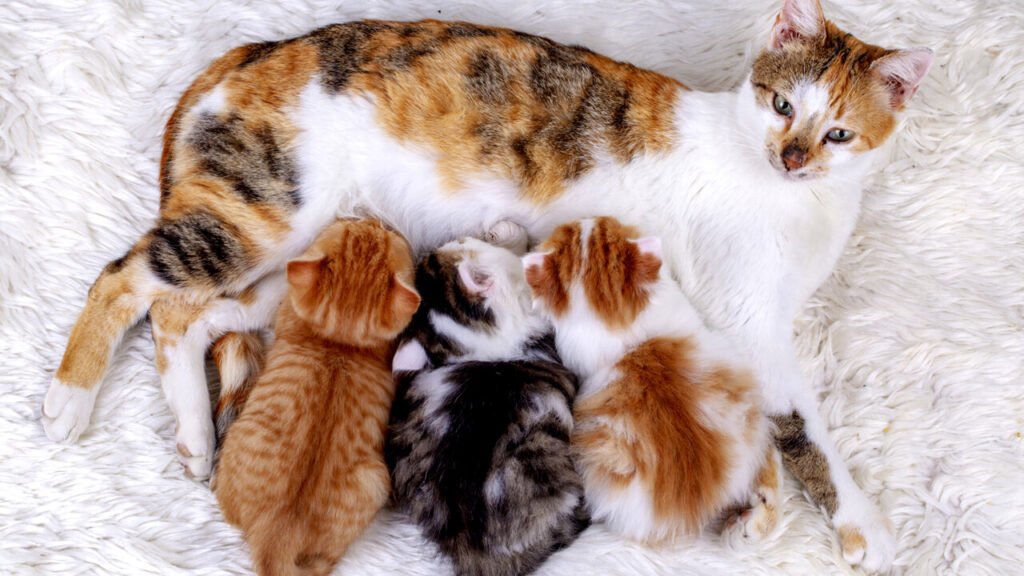I cats They are known for their independent and often mysterious nature, but anyone who owns a cat knows that these charming cats can develop deep, affectionate bonds with people. While some cats seem to immediately attach to everyone they meet, others can be more selective, preferring the company of people with certain characteristics.
Understanding what types of people like cats is not only possible improve our relationship with thembut it also helps us create a more harmonious environment for our feline friends.
Good features
One of the qualities that people appreciate about cats is their ability to show off empathy e calm. Cats are very sensitive animals, able to understand and react to the emotions and feelings of the people around them. A person who can remain calm and show understanding of the cat’s needs is often welcome.
Cats prefer people who are calm and patient. Slow movements and gentle movements make them feel safe and non-threatening. Conversely, disruptive or noisy behavior can frighten cats, making them more cautious and less inclined to approach.
Sound also plays a fundamental role. Cats respond positively to soft, calm tones of voice. Talking to them in a sweet and reassuring way helps create a bond of trust. THE kind gestures like light caresses and delicate touches, are equally important. These signals communicate to the cat that the human is friendly and respectful of its space and needs.
In summary, a kind and calm person, who knows how to respect the cat’s time and space, is always preferred by cats. Showing patience and understanding not only helps to gain the cat’s trust, but also helps to create a calm and welcoming environment, where the cat feels loved and safe.
The importance of respecting personal space
Another key quality that makes a person like cats is respect their personal space. These cats are independent creatures, who always need moments of solitude to feel comfortable. Recognizing and respecting this need is essential to building a relationship of trust and affection with a cat.
Another element that should not be underestimated is that cats appreciate being in control of their environment and their social interactions. Forcing a cat to socialize when it doesn’t want to can cause it stress e ANXIETY which leads to the deterioration of the relationship. It is important to allow the pet to approach as he wishes, allowing him to decide when is the right time for interaction.
Also remember that many cats love to be cuddled, but only if they want it. Trying to take them or care for them against their will will be counterproductive. It is important to observe your cat’s body language to understand when it is the right time to cuddle. Signs such as ears folded back, a wagging tail or a stiff body indicate that the cat is uncomfortable and prefers to be left alone.
So, offering your cat safe places to retreat to is another way to show respect for his personal space. The house’s quiet areas, shelters and comfortable beds allow your 4-legged friend to have his own space where he can relax undisturbed. it sense of security helps improve the cat’s well-being and strengthen the bond with the owner.
Experience and knowledge of cats
Another important factor that determines who cats like is their experience and knowledge of cat behavior. People who are familiar with the habits, signals and needs of cats tend to be more popular with cats, because they know how to interact with them correctly and respectfully.
People who have experience handling cats develop a deep understanding of their needs and behavior. They learn to interpreting body language signals. This ability to read and respond correctly to cats’ signals creates an environment of trust and comfort for the animal.
An experienced owner knows how to recognize different meows and behaviors; for example, it can recognize when a cat is begging for food, when it wants to play or when it needs medical attention. This sensitivity to his needs will contribute to a more harmonious and rewarding relationship.
Finally, remember that every cat is an individual with unique needs. Experienced people know that some cats may have specific food preferences, need for particular types of play or particular attention. This awareness allows you to adapt the home environment and daily routines to best meet the cat’s needs, thus improving its well-being and the quality of the relationship.

